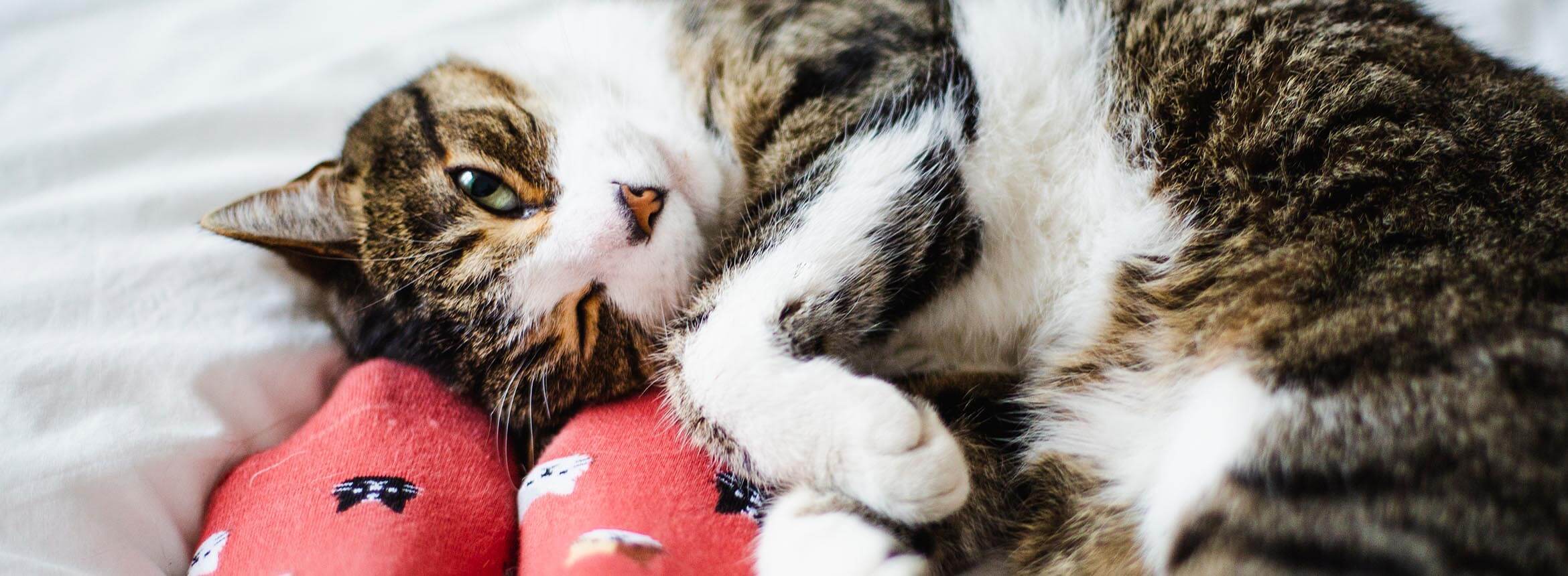Do Cats Get Cold?
Like Pet Parents, cats of all ages can get a little chilly as the temperature drops. These tips will help you keep your feline comfy, warm, and safe.
Winter Safety Tips for Cats
How To Know If My Cat Is Cold
While most cats curl up in a ball to get cozy, felines who are cold will tuck their paws and tail beneath their body when curled up to conserve as much heat as possible. If their ears, footpads, or tail are chilly to the touch, they might be cold.
Some cats may look for heat sources like vents or a radiator to lay close to (or on) to get warm. In extreme circumstances, your cat might shiver or have dilated pupils.
Keep Them Active
There's nothing like a workout to stay warm! Use pointers, toys with feathers or strings they can chase, or cat towers to keep your cat up and active. It just might cure the winter blues for both you and your cat.
Don't Skip Winter Grooming
A cat's hair and skin can be susceptible to winter dryness, just like humans. Regular grooming maintains a silky coat and prevents matting, which can lead to irritated skin.
Make a Warm Indoor Space For Your Cat
Heated beds can help create a halo of warmth when your cat dozes off. Another good idea is to build a warm nook with soft blankets. Look for lightweight, breathable fabrics like cotton and avoid weighted blankets that can be hard to get out of. Ensure the blankets aren’t twisted up or closed off so your cat can get out on their own.
Since heat rises, move your cat’s bed to a higher position so they’re not laying in drafty or chilly areas.
If your cat loves the outdoors, it’s best for them to stay inside during the winter — especially if they’re still a kitten. Like humans, cats can suffer from hypothermia and frostbite if they’re outside for an extended period, even if the temperature is above freezing.
Safety tip: Cats love warm spots, so be sure to keep space heaters out of reach and place gates around fireplaces.
Watch Out For Cats In Car Engines
If your cat plays in the garage, you might find them trying to get warm under your car during the winter. Give the hood a couple of bangs so they’ll dart out from underneath toward a safer spot, then bring them inside the house before you get back in the car.
Safety tip: Securely store winter salts and anti-freeze solutions since they are poisonous to pets. Anti-freeze tastes sweet, which can be very tempting to cats. If your cat ingests anti-freeze, they need to be seen by a veterinarian quickly as this is a medical emergency.

